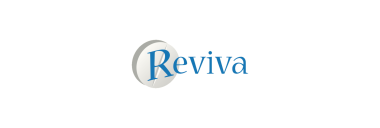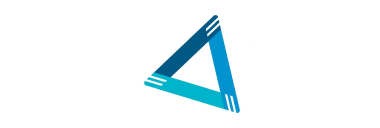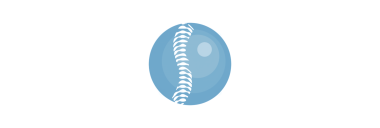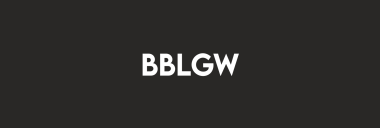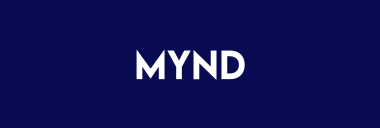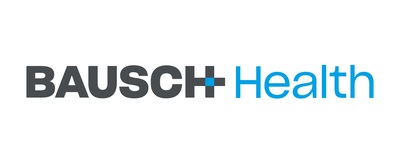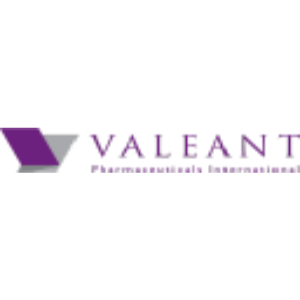Bausch + Lomb Announces Statistically Significant Topline Results From The First Phase 3 Trial Of NOV03 (perfluorohexyloctane) In Dry Eye Disease Associated With Meibomian Gland Dysfunction
Rhea-AI Summary
Bausch Health and Novaliq announced successful results from the first Phase 3 trial (GOBI) of NOV03 for treating dry eye disease associated with meibomian gland dysfunction. The trial met both co-primary endpoints, achieving statistical significance in corneal staining and dryness scores at day 15, with continued positive results through day 57. Over 16 million U.S. adults suffer from dry eye disease, making this drug significant. Further studies (MOJAVE and KALAHARI) will assess safety and efficacy, potentially leading to FDA filing in 2022.
Positive
- Both co-primary endpoints met in Phase 3 GOBI trial for NOV03, with p-values indicating strong statistical significance (tCFS: p=0.001; dryness score: p=0.009).
- All secondary endpoints achieved statistical superiority over placebo, validating the efficacy of NOV03.
- NOV03 was well tolerated, with minimal adverse effects reported (0.5% instillation site reactions).
- Positive topline results from the ongoing MOJAVE study may lead to FDA filing in 2022.
Negative
- None.
Insights
Analyzing...
All Primary and Secondary Endpoints Were Achieved
LAVAL, QC and HEIDELBERG, Germany, April 13, 2021 /PRNewswire/ -- Bausch + Lomb, a leading global eye health business of Bausch Health Companies Inc. (NYSE/TSX: BHC) ("Bausch Health" or the "Company"), and Novaliq GmbH, a biopharmaceutical company focusing on first- and best-in-class ocular therapeutics, today announced statistically significant topline data from the first Phase 3 trial (GOBI trial) evaluating the investigational drug NOV03 (perfluorohexyloctane) as a first-in-class eye drop with a novel mechanism of action to treat the signs and symptoms of dry eye disease (DED) associated with meibomian gland dysfunction (MGD).
Dry eye disease is one of the most common ocular surface disorders causing discomfort for millions of Americans, with MGD playing a key role in the development of the disease.1,2 The GOBI trial met both of its co-primary endpoints, including:
- Change from baseline in total Corneal Fluorescein Staining (tCFS), a measure of assessing damage to the eye, achieved statistical significance at day 15 [p-value = 0.001] (secondary endpoint), with continued results through day 57 (primary endpoint) compared to control [p-value < 0.001],
- Change from baseline in dryness score achieved statistical significance at day 15 [p-value = 0.009] (secondary endpoint), with continued results through day 57 (primary endpoint) compared to control [p-value < 0.001], as rated on a visual analogue scale (VAS) ranging from 0-100 (0 = no discomfort; 100 = maximum discomfort).
The GOBI trial also met all of its secondary endpoints, showing statistically significant improvements in both the signs and symptoms of DED associated with MGD that were studied.
"More than 16 million adults in the United States have some form of dry eye disease, with meibomian gland dysfunction as a known cause for a majority of these cases2," said Joseph C. Papa, chairman and CEO, Bausch Health. "The rapid onset of action and statistical significance demonstrated in this trial is impressive. It also gets us a step closer to bringing forward this potential first-in-class treatment option, which could be a promising development for millions of patients."
"I am very impressed by the positive results from this first Phase 3 study of NOV03, in particular the findings at day 15 in treating the signs and symptoms of the disease," said Joseph Tauber, M.D., founder of Tauber Eye Center in Kansas City, Mo., and trial investigator. "These findings validate the importance of the continued development of NOV03, and I look forward to seeing additional results from the Phase 3 program."
The Phase 3 program for NOV03 includes an ongoing second Phase 3, multi-center, randomized, double-masked, saline-controlled trial (MOJAVE study) and a multi-center, open-label, single-arm 12-month safety extension trial (KALAHARI study). Topline results from MOJAVE, if positive, will allow for a filing to the U.S Food and Drug Administration in 2022.
"We are very pleased with both the robustness and consistency of the results demonstrated in the GOBI trial as they confirm all efficacy and safety results from the previous Phase 2 SEECASE trial," said Christian Roesky, Ph.D., CEO, Novaliq. "NOV03 has a novel mode of action specifically designed to treat the signs and symptoms of dry eye disease associated with meibomian gland dysfunction, and we look forward to completing the program in close collaboration with Bausch Health and Bausch + Lomb."
Summary of Phase 3 GOBI Study Results
The data was based on results from 597 participants aged 18 years and older who were randomized to either receive treatment with NOV03 four times daily or administration of placebo (saline solution) four times daily.
The multi-center, randomized, double-masked, saline-controlled Phase 3 study, which was conducted at 26 location in the United States, also included four prespecified secondary endpoints, which all demonstrated statistical superiority over placebo: change from baseline in tCFS at day 15 [p-value = 0.001]; change from baseline in dryness score at day 15 [p-value = 0.009]; change from baseline in VAS burning/stinging at day 57 [p-value = 0.006]; and change from baseline in central Corneal Fluorescein Staining (cCFS) at day 57 [p-value < 0.001].
NOV03 was well tolerated with instillation site reactions below
"I would like to thank the patients and doctors who participated in this study, as well as our research and development team for their dedication and hard work in helping to achieve this important milestone, particularly amid the added complexities brought on by the COVID-19 pandemic," said Mr. Papa.
About NOV03 (perfluorohexyloctane) Ophthalmic Solution
NOV03 is an investigational, proprietary, water-free and preservative-free solution, based on patented EyeSol® technology from Novaliq GmbH.3 In 2019, Bausch Health and Bausch + Lomb acquired an exclusive license for the commercialization and development of NOV03 in the United States and Canada, and together, they announced in November 2020 that they have initiated the second of two Phase 3 studies to evaluate NOV03. In January 2021, they announced a Phase 2 clinical study (SEECASE) evaluating NOV03 was published in Cornea: The Journal of Cornea and External Disease.4
About Novaliq
Novaliq is a biopharmaceutical company focusing on the development and commercialization of first- and best-in-class ocular therapeutics based on EyeSol®, the worldwide first water-free technology. Novaliq offers an industry-leading portfolio addressing today's unmet medical needs of millions of patients with eye diseases. Novaliq GmbH is headquartered in Heidelberg, Germany and Novaliq Inc. has an office in Cambridge, MA, USA. The long-term shareholder is dievini Hopp BioTech holding GmbH & Co. KG, an active investor in Life and Health Sciences companies. More on www.novaliq.com.
About Bausch + Lomb
Bausch + Lomb, a leading global eye health business of Bausch Health Companies Inc., is solely focused on helping people see. Its core businesses include over-the-counter products, dietary supplements, eye care products, ophthalmic pharmaceuticals, contact lenses, lens care products, ophthalmic surgical devices and instruments. Bausch + Lomb develops, manufactures and markets one of the most comprehensive product portfolios in the industry, which is available in approximately 100 countries. For more information, visit www.bausch.com.
About Bausch Health
Bausch Health Companies Inc. (NYSE/TSX: BHC) is a global company whose mission is to improve people's lives with our health care products. We develop, manufacture and market a range of pharmaceutical, medical device and over-the-counter products, primarily in the therapeutic areas of eye health, gastroenterology and dermatology. We are delivering on our commitments as we build an innovative company dedicated to advancing global health. More information can be found at www.bauschhealth.com.
Forward-looking Statements
This news release may contain forward-looking statements, which may generally be identified by the use of the words "anticipates," "expects," "intends," "plans," "should," "could," "would," "may," "believes," "estimates," "potential," "target," or "continue" and variations or similar expressions. These statements are based upon the current expectations and beliefs of management and are subject to certain risks and uncertainties that could cause actual results to differ materially from those described in the forward-looking statements. These risks and uncertainties include, but are not limited to, the results of the additional development activities, registration and approval of NOV03 and the risks and uncertainties discussed in Bausch Health's most recent annual report on Form 10-K and detailed from time to time in Bausch Health's other filings with the U.S. Securities and Exchange Commission and the Canadian Securities Administrators, which factors are incorporated herein by reference. They also include, but are not limited to, risks and uncertainties caused by or relating to the evolving COVID-19 pandemic, and the fear of that pandemic and its potential effects, the severity, duration and future impact of which are highly uncertain and cannot be predicted, and which may have a material adverse impact on Bausch Health, including but not limited to its project development timelines, and costs (which may increase). Readers are cautioned not to place undue reliance on any of these forward-looking statements. These forward-looking statements speak only as of the date hereof. Bausch Health undertakes no obligation to update any of these forward-looking statements to reflect events or circumstances after the date of this news release or to reflect actual outcomes, unless required by law.
References
- Leonardi A, Modugno RL, Salami E. Allergy and Dry Eye Disease. Ocul Immunol Inflamm. 2021 Feb 5:1-9. doi: 10.1080/09273948.2020.1841804. Epub ahead of print. PMID: 33544639. Available at https://pubmed.ncbi.nlm.nih.gov/33544639/. Accessed on 4/8/21.
- Sun M, Moreno IY, Dang M, Coulson-Thomas VJ. Meibomian Gland Dysfunction: What Have Animal Models Taught Us? Int J Mol Sci. 2020 Nov 21;21(22):8822. doi: 10.3390/ijms21228822. PMID: 33233466; PMCID: PMC7700490. Available at https://www.ncbi.nlm.nih.gov/pmc/articles/PMC7700490/ Accessed 4/8/21
- In December 2019, Bausch Health acquired the rights from Novaliq GmbH to pursue development and commercialization of NOV03 for DED and combination products based on NOV03 in additional ophthalmic indications in the United States and Canada.
- Tauber J, Wirta DL, Sall K, Majmudar PA, Willen D, Krösser S; SEECASE study group. A Randomized Clinical Study (SEECASE) to Assess Efficacy, Safety, and Tolerability of NOV03 for Treatment of Dry Eye Disease. Cornea. 2020 Dec 22; Publish Ahead of Print.
Any product/brand names and/or logos are trademarks of the respective owners.
© 2021 Bausch & Lomb Incorporated or its affiliates.
Novaliq Media Contact:
Simone Angstmann-Mehr
info@novaliq.com
Bausch Health Investor Contact:
Arthur Shannon
arthur.shannon@bauschhealth.com
(514) 865-3855
(877) 281-6642 (toll free)
Bausch Health Media Contact:
Lainie Keller
lainie.keller@bauschhealth.com
(908) 927-1198
![]() View original content to download multimedia:http://www.prnewswire.com/news-releases/bausch--lomb-announces-statistically-significant-topline-results-from-the-first-phase-3-trial-of-nov03-perfluorohexyloctane-in-dry-eye-disease-associated-with-meibomian-gland-dysfunction-301267385.html
View original content to download multimedia:http://www.prnewswire.com/news-releases/bausch--lomb-announces-statistically-significant-topline-results-from-the-first-phase-3-trial-of-nov03-perfluorohexyloctane-in-dry-eye-disease-associated-with-meibomian-gland-dysfunction-301267385.html
SOURCE Bausch Health Companies Inc.

